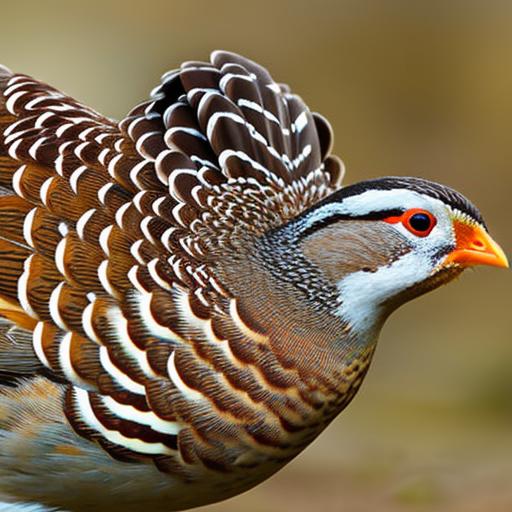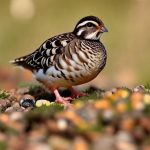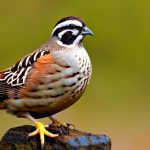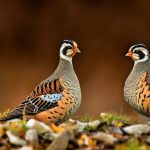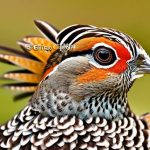When it comes to housing and shelter for your poultry, it’s important to provide a safe and secure environment for them to thrive. A well-constructed coop or housing structure is essential to protect your birds from predators and the elements. The coop should be spacious enough to allow for natural behaviors such as roosting, nesting, and foraging. It’s also important to provide adequate ventilation to prevent the buildup of moisture and ammonia, which can lead to respiratory issues in your birds.
In addition to a secure coop, it’s important to provide a safe outdoor space for your poultry to roam and forage. This can be achieved through the use of a fenced-in yard or a chicken run. Providing access to fresh grass, insects, and other natural elements will not only keep your birds happy and healthy but also reduce the risk of behavioral issues such as feather picking and aggression. It’s also important to regularly clean and maintain the coop and outdoor space to prevent the buildup of waste and bacteria, which can lead to disease and illness in your flock.
Key Takeaways
- Housing and shelter should provide protection from predators and the elements, with enough space for the animals to move around comfortably.
- Feeding and nutrition should be carefully monitored to ensure animals receive a balanced diet that meets their specific needs.
- Watering and hydration are essential for animals to stay healthy and should be readily available at all times.
- Health and wellness should be regularly monitored, and animals should receive proper veterinary care when needed.
- Temperature control is crucial, as animals need to be kept at a comfortable temperature to avoid stress and illness.
- Exercise and entertainment are important for the physical and mental well-being of animals, and should be incorporated into their daily routine.
- Winter breeding and egg production may require additional attention to ensure the animals’ needs are met during the colder months.
Feeding and Nutrition
Feeding and nutrition are crucial aspects of poultry care that directly impact the health and well-being of your birds. A balanced diet is essential to ensure that your poultry receive the necessary nutrients to support growth, egg production, and overall health. A good quality commercial feed formulated specifically for poultry is a great foundation for their diet. This should be supplemented with fresh fruits and vegetables, as well as access to grit and oyster shell for calcium and digestion.
In addition to providing a balanced diet, it’s important to ensure that your birds have access to clean, fresh water at all times. Water is essential for digestion, temperature regulation, and overall health. It’s important to regularly clean and refill water containers to prevent the buildup of bacteria and algae. In addition to food and water, it’s important to provide enrichment activities such as hanging treats or foraging toys to keep your birds mentally stimulated and engaged.
Watering and Hydration
Watering and hydration are essential aspects of poultry care that directly impact the health and well-being of your birds. Clean, fresh water should be available at all times to ensure that your poultry stay properly hydrated. Dehydration can lead to a range of health issues including decreased egg production, poor growth, and even death. It’s important to regularly clean and refill water containers to prevent the buildup of bacteria and algae, which can lead to illness in your flock.
In addition to providing clean water, it’s important to consider the temperature of the water during extreme weather conditions. In cold weather, water can freeze, so it’s important to provide heated waterers or regularly check and replace frozen water. In hot weather, it’s important to provide shade and cool water to prevent heat stress and dehydration in your birds. Proper hydration is essential for digestion, temperature regulation, and overall health in your flock.
Health and Wellness
Maintaining the health and wellness of your poultry is essential for their overall well-being and productivity. Regular health checks are important to monitor for signs of illness or injury in your flock. This includes checking for any changes in behavior, appetite, or egg production. It’s also important to regularly inspect your birds for any signs of parasites such as lice or mites, which can cause discomfort and stress in your flock.
In addition to regular health checks, it’s important to provide a clean and sanitary environment for your birds. This includes regularly cleaning the coop and outdoor space, as well as providing dust baths for your birds to help control parasites. It’s also important to practice good biosecurity measures to prevent the spread of disease within your flock. This includes limiting contact with other poultry flocks, as well as practicing proper quarantine procedures for new birds.
Temperature Control
Maintaining proper temperature control is essential for the health and well-being of your poultry, especially during extreme weather conditions. In cold weather, it’s important to provide adequate insulation and heating in the coop to prevent frostbite and hypothermia in your birds. This can be achieved through the use of heat lamps, heated waterers, and proper ventilation to prevent moisture buildup.
In hot weather, it’s important to provide shade and ventilation to prevent heat stress in your birds. This can be achieved through the use of shade cloth or natural shade from trees, as well as providing cool water and misters to help lower the ambient temperature. It’s also important to monitor your birds for signs of heat stress such as panting, lethargy, or decreased egg production. Proper temperature control is essential for the health and productivity of your flock.
Exercise and Entertainment

Providing opportunities for exercise and entertainment is important for the mental and physical well-being of your poultry. This can be achieved through the use of enrichment activities such as hanging treats or foraging toys, as well as providing access to a spacious outdoor area for your birds to roam and explore. Foraging for insects, dust bathing, and roosting are natural behaviors that should be encouraged in your flock.
In addition to enrichment activities, it’s important to provide opportunities for social interaction within your flock. This can be achieved through the introduction of new birds or providing opportunities for free-ranging with other poultry flocks. Social interaction is important for reducing stress and aggression within your flock, as well as promoting overall well-being.
Winter Breeding and Egg Production
Winter breeding and egg production can present unique challenges for poultry owners due to the shorter daylight hours and colder temperatures. It’s important to provide supplemental lighting in the coop to ensure that your birds receive at least 14 hours of light per day, which is necessary to stimulate egg production. This can be achieved through the use of artificial lighting on a timer or by providing access to natural light in a well-lit area.
In addition to supplemental lighting, it’s important to provide adequate insulation and heating in the coop to prevent frostbite and hypothermia in your birds during the winter months. This can be achieved through the use of heat lamps, heated waterers, and proper ventilation to prevent moisture buildup. It’s also important to monitor your birds for signs of stress or illness during the winter months, as they may be more susceptible to respiratory issues or decreased egg production.
In conclusion, providing proper care for your poultry requires attention to their housing and shelter, feeding and nutrition, watering and hydration, health and wellness, temperature control, exercise and entertainment, as well as specific considerations for winter breeding and egg production. By addressing each of these aspects with care and attention, you can ensure that your flock remains healthy, happy, and productive throughout the year.
If you’re looking for tips on how to keep quails in winter, you might also be interested in learning about the ideal coop size for chickens. Understanding the space requirements for your poultry is crucial for their well-being, and this article on “how big does a coop need to be for a chicken” from Poultry Wizard provides valuable insights into creating a comfortable living environment for your feathered friends. Check it out here.
FAQs
What are some important considerations for keeping quails in winter?
Quails need to be kept warm and protected from harsh weather conditions during the winter. It’s important to provide them with adequate shelter, bedding, and heating to ensure their well-being.
What type of shelter is best for quails in winter?
A well-insulated and draft-free shelter is essential for quails in winter. This can be a coop or a shed with proper ventilation to prevent moisture buildup. Adding extra bedding and nesting material can also help keep them warm.
How can I keep quails warm in winter?
Using heat lamps, heated pads, or heated waterers can help keep quails warm during the winter months. It’s important to monitor the temperature in their shelter and make adjustments as needed to maintain a comfortable environment.
What should I feed my quails in winter?
Quails require a balanced diet year-round, but it’s especially important to provide them with high-quality feed during the winter to help them maintain their body temperature. Additionally, offering some extra treats, such as mealworms or greens, can help provide them with additional nutrients and energy.
How can I prevent frostbite in quails during winter?
To prevent frostbite, it’s important to keep quails’ feet dry and provide them with a well-insulated shelter. Avoiding damp bedding and ensuring proper ventilation can also help prevent frostbite in quails.
Meet Walter, the feathered-friend fanatic of Florida! Nestled in the sunshine state, Walter struts through life with his feathered companions, clucking his way to happiness. With a coop that’s fancier than a five-star hotel, he’s the Don Juan of the chicken world. When he’s not teaching his hens to do the cha-cha, you’ll find him in a heated debate with his prized rooster, Sir Clucks-a-Lot. Walter’s poultry passion is no yolk; he’s the sunny-side-up guy you never knew you needed in your flock of friends!

